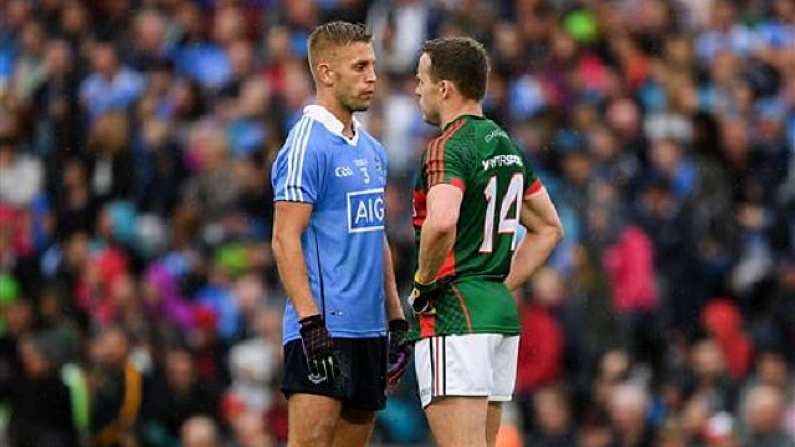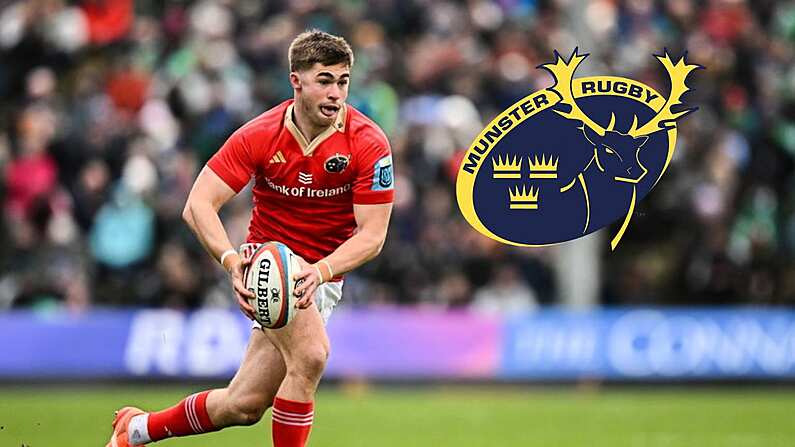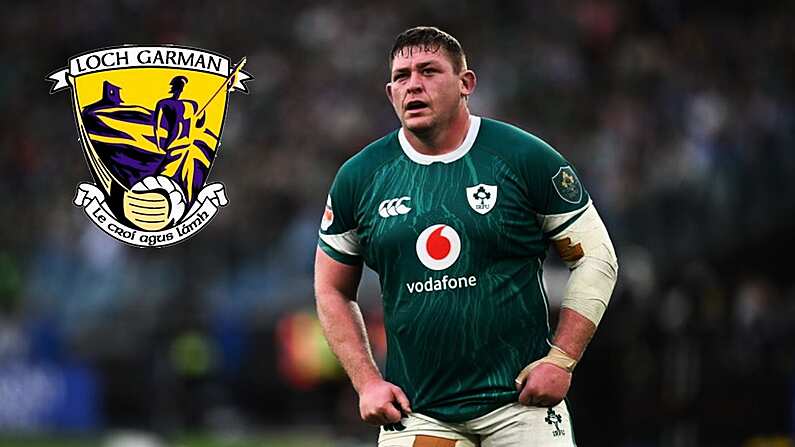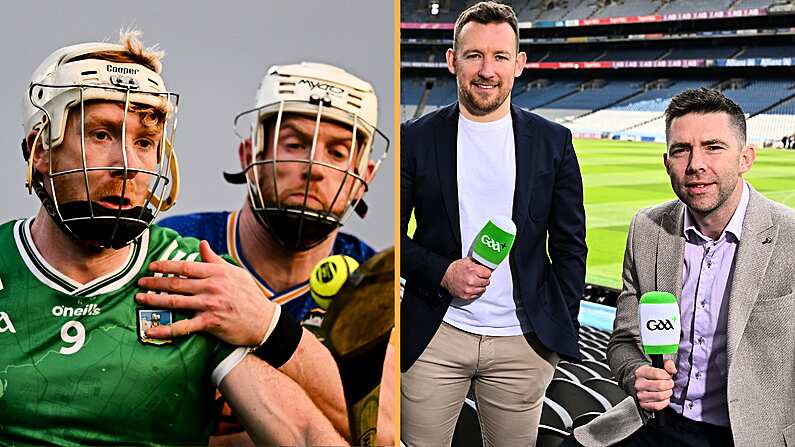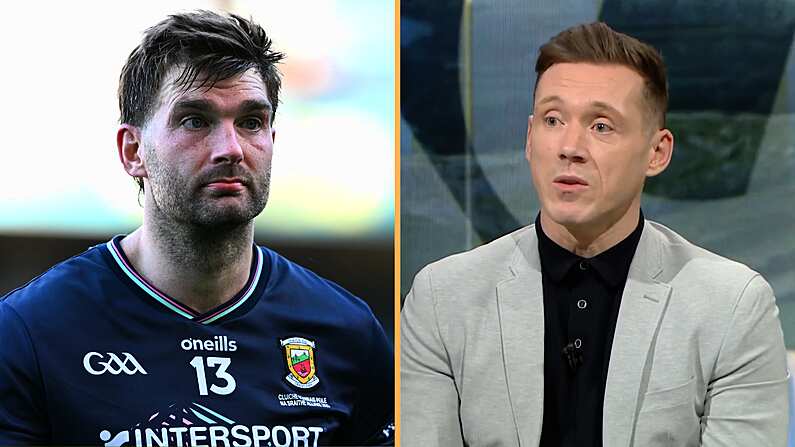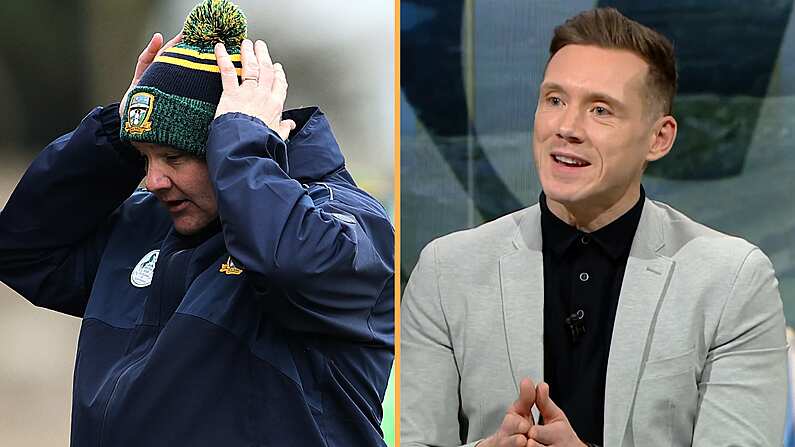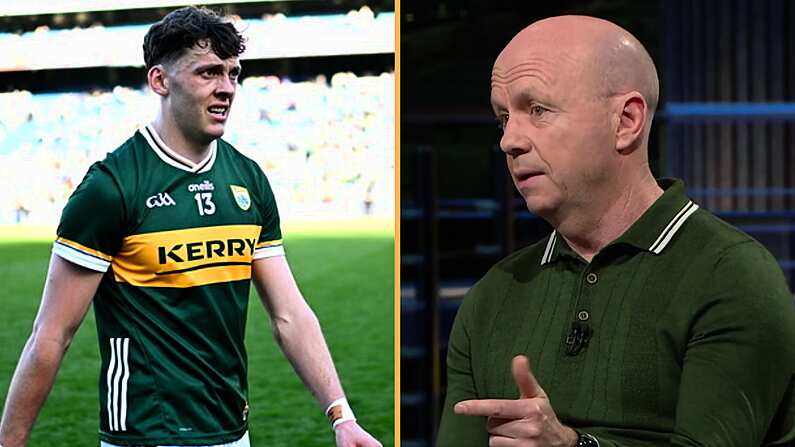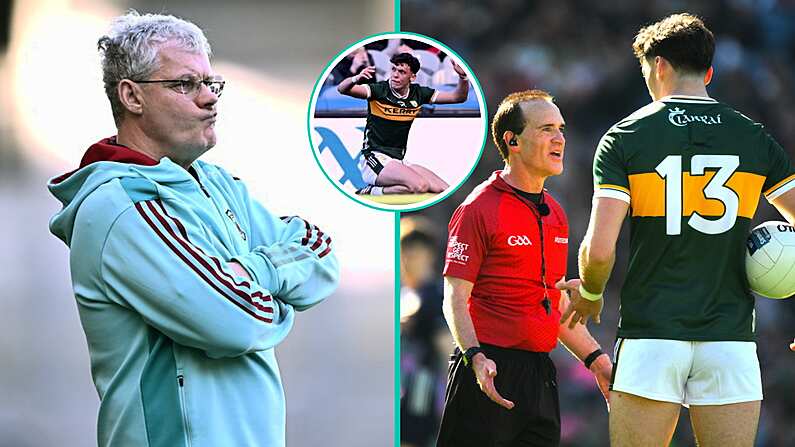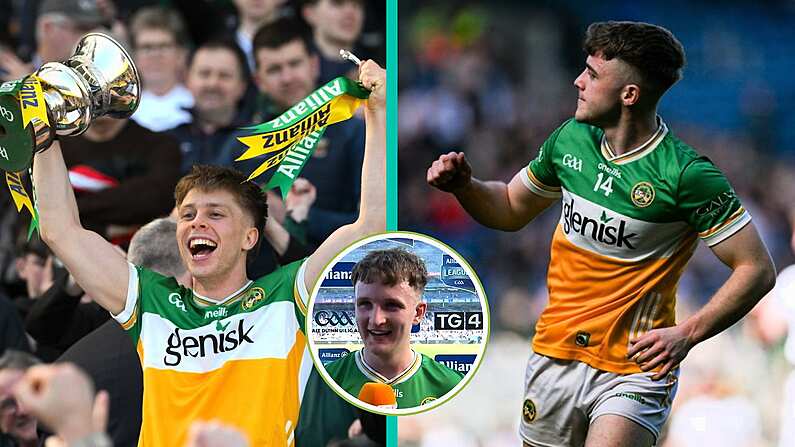"They've missed their chance." That old adage. Used almost exclusively in GAA, it's usually reserved for a 'gallant' or 'plucky' underdog who take Kilkenny to a replay - Waterford, most recently - or the Cork footballers in the aftermath of a see-saw battle with a complacent Kerry in Munster.
It's a phrase that's usually correct, too - some sporting platitudes become so for a reason; the so-called-so-called smaller teams tend not to repeat their heroics of the original fixture, succumbing to the inevitable against a goliath of the game in Thurles or Killarney or Salthill.
But it shouldn't be applied to Mayo following their compelling draw with Dublin at Croke Park on Sunday. It shouldn't be uttered in The Merry Monk or Palace Bar in the next fortnight. The Westerners enter their All-Ireland final replay on level pegging with the champions.
Mayo are probably the only team and county in Ireland with the temerity not to give a flying shite about Dublin or their recent, seemingly indomitable success. They proved that on Sunday.
Lost somewhere between the typically savage physicality on display and Dublin's 12 wides (they won't be that bad next time, says your da) was the fact that Mayo, too, hardly excelled with ball in hand. Stephen Rochford's men fired seven of their own over the end-line and were extremely wasteful in possession - turning the ball over 17 times in the first half alone.
The more you see of Aidan O'Shea in massive fixtures such as yesterday's, the more difficult it is to imagine him landing scores akin to that of his captain's late leveller; how fitting it was that sheer full-body fatigue, brought upon by trying to bludgeon his way through the entire Dublin defence on countless occasions, forced him to offload the ball to Cillian O'Connor who, with a rare moment of guile in a game that will be remembered for the opposite, demonstrated with aplomb how to lead a team.
That's not to suggest O'Shea is misguidedly guilty of trying to be the hero - the Breaffy man is simply desperate to win an All-Ireland like his teammates. But his propensity for running into cul de sacs against more defensively attuned teams than Sligo begs a few questions as to his mentality and footballing intelligence. He needs to refine his bursts and, like Mayo's captain O'Connor, pick his moments. Several Dublin stars are capable of so much more than they showed on Sunday, but so too is a potential game-winner in O'Shea, who won't perform as poorly again in October. The same can arguably not be said for Dublin's marquee player in Diarmuid Connolly, whom Lee Keegan has - legally or otherwise - kept extremely quiet in four encounters between the pair (Indeed, Connolly has notched just five times from play in his five Championship appearances versus Mayo).
And to think that had Andy Moran kept his shot fractionally lower while bearing down on Stephen Cluxton's goal, all of this might have been irrelevant. Despite a relatively impressive individual display, he and a number of Mayo forwards were guilty of faltering in Dublin territory, admittedly amidst conditions hardly conducive to a conveyor belt of back-to-back scores for either side.
Dublin's greatest strength as a collective is their almost unique immunity to momentum swings. The narrative shift as Mayo rattled off a succession of points early in the second half had the nation on its feet. 65 years? Try 25 minutes. It was on. But, as they displayed when Kerry had them on the ropes in the semi-final, Jim Gavin's men possess a mental fortitude rarely seen in any sport - an ability to bite down and on the gumshield and swing for The Hill. Survive and advance.
This self-belief kept them alive in tight affairs versus both Kerry and Mayo, but when it strayed into the 'arrogance' that Tony McEntee mentioned two years ago, with less than a minute remaining, it would result in Mayo finally proving their own big-time mettle. Diarmuid Connolly's insistence that he kick for a point from the sideline after Dublin had all-but killed the game with a period of static possession was frankly absurd, but given all that had gone before - two own goals, for Christ's sake - and the sense of sheer inertia as another 'bottle-job' seemed destined to come to pass, O'Connor and friends pulled themselves from the wreckage in a manner which the Mayo team of yesteryear never could have.
It was more than an equalising score. It was a two-fingered gesture to the rest of the country, for whom the word Mayo had strayed precariously close to being used as a verb for sporting failure.
The final 15 seconds, as Dublin's defenders hot-potatoed the ball back-and-forth in front of goal until the final whistle brought relative sanctity, was telling. They had met their match. Time to regroup and go again.
And the post-game perception from pundits that the champions have an infinitely greater capacity to improve is a nonsense. Quality-wise, the game was a write-off, and Mayo were as horrendous in possession as their opposition. Indeed, in the final third, their composure and final ball was often worse. Was it a missed opportunity? Certainly. But the difference this year is that Mayo get another one, and they enter it on equal footing with their bitter nemeses, knowing that they frightened the shite out of an off-colour Dublin while themselves performing miles below par.
For the first time, this Mayo team showed an almost maniacal refusal to be beaten - the immovable object to Dublin's unstoppable force. When they go again in two Saturdays' time, it'll register on the Richter Scale. But crucially for Mayo, the fear factor that has inhibited their ability to finish such games in recent seasons will have long-since dissipated.

